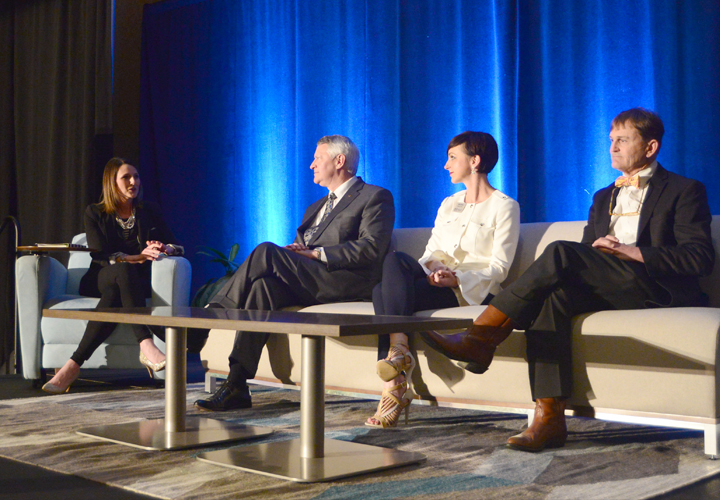Looking at the future of health care

The Springfield region – like Missouri and the rest of the country – has several positives on the health care horizon, but also faces significant challenges. That was the message from the March 28 Health Care Outlook, the first event in the 2018 Outlook Series.
The Chamber’s economic development arm, the SBDC, developed the Outlook Series to highlight trends in industries that drive the Springfield regional economy. The main focus of this year’s Health Care Outlook was the issues modern health care is facing at a local, state, and national level and the strategies for combating them.
Facing the issues
One of the biggest challenges in the health care industry is the need for skilled workers to keep up with the ever-increasing demand of an aging population. Today, 36,000 people – or 1 out of every 6 members of the workforce – in the Springfield region work in the health care industry, not factoring in thousands of currently unfilled job openings.
That’s why the Chamber and SBDC continue to work on talent attraction, development and retention programs. The Talent Attraction Initiative, for example, has been designed with the help of local employers to draw new, skilled employees to the area. The initiative’s website, LiveInSpringfieldMO.com, has had more than 100,000 visitors since its launch, with more than 45,000 people viewing a series of videos created to tout the area as a destination to live, work, play, and learn.
And the TAI has been recognized time and again as a best practice in the industry, both for its longevity as an exemplary program and more recently as a best practice in customer service based on our response to requests for information from those looking to move to the area.
But the issue isn’t just finding enough quality employees. The Health Care Outlook’s expert panel also pointed out that providers must be positioned to offer the best care
Example: Missouri currently has roughly 20,000 physicians, according to panelist Dr. Randall Williams, director of the Missouri Department of Health and Senior Services. But 12,000 of those physicians work in three of the state’s 114 counties. “Those other counties exist; I’ve been there,” he said. “We’re committed to improving access to physicians in those other counties as well.”
The opioid epidemic is another critical issue highlighted at the event, hitting Missouri as it has hit nearly every other state in the country. Panelist Dr. David Barbe, VP of regional operations for Mercy and current president of the American Medical Association, said that while the number of opioid prescriptions has decreased by 20% in the last few years, deaths due to opioid overdose continue to rise due to the prevalence of those drugs on the street.
“Fentanyl and carfentanil are incredibly dangerous; carfentanil, for example, is 10,000 times more powerful than morphine,” he said. “We need to devote more resources to non-opioid pain management, prescription abuse management and support programs.”
Looking forward
Despite these significant challenges, there are also plenty of reasons to be optimistic. The panelists agreed that technology is increasing access to health care services for everyone, which is a critical step in addressing the physician shortage, the opioid epidemic, and driving down health care costs for employers. Katie Towns, assistant director of the Springfield-Greene County Health Department, noted the continued importance of both telehealth and combining services into a single location to improve access.
“Plugging people in to all the available options is key to creating a healthy community, and we need to encourage that,” she said. “The question always needs to be, ‘How do we decrease barriers and increase access?’”
And Dr. Williams was quick to point out that Springfield is a model for the state, with leadership from individuals like Towns and Dr. Barbe, as well as the cooperative spirit between the city’s two major health systems and business leaders.
“Missouri has tremendous human capital to address these issues, and Springfield is an exemplar of the community coming together to talk about how the health community affects business and vice versa,” he said.

